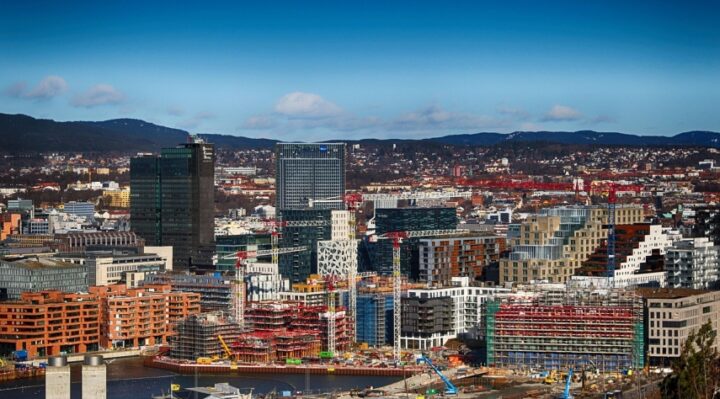A meeting aimed at representatives of the Baltic states will take place in Oslo on Tuesday where discussions will focus on the implementation of the European Green Deal in the development of electric transport solutions.
At the meeting, leading Norwegian officials, enterprises and the non-governmental sector will share their experiences and examples about sustainable transport and climate issues with representatives of Estonia, Latvia and Lithuania.
The meeting will be led by Moller Baltic Import whose goal is to promote a faster transition to sustainable mobility in the Baltic states and to strengthen the area’s energy independence.

Climate change and the geopolitical processes in the Baltic region are encouraging the states to end their dependence on fossil energy resources faster than before. In order to ensure energy independence in the region, the states are pursuing environmentally friendly solutions.
The main factors in the success of Norway are close cooperation between the state and local governments and the successful implementation of a combination of transport tax rates and stimuli. As a result, Norway boasts the highest number of electric cars per resident. In the first quarter of this year, electric cars accounted for 82.9 percent of all new cars.
“The most important factors in the rapid increase of e-mobility in Norway are targeted and well though-out cooperation between the state and local governments, the introduction of e-mobility tax rates and support mechanisms for the private and entrepreneurship sector. Last year, 64.5 percent of all new cars sold in Norway were electric cars. Even though the share of electric cars in the Baltic states is only around 3 percent at present, the Baltics overall have good starting positions for future growth in e-mobility. Estonia, Latvia and Lithuania have equal positions in this field, which enables much broader options for fostering the development of e-mobility through joint action,” head of the Baltic region at Moller Mobility Group Tore Nilsen Breen said.
While there are differences between the measures used in the Baltic states to promote e-mobility, the region needs a shared strategy to develop energy independence and create a favorable environment for attracting investments.
“Norway’s good experience shows that the efficient development of e-mobility must be uniform in the entire region. Close cooperation between the Baltic states and local governments, developing a policy for taxes and stimuli that supports electric cars, and creating a uniform infrastructure at the Baltic Sea level are important cornerstones to promoting sustainable mobility and ensuring the region’s energy independence,” CEO of Moller Baltic Import Ilze Grase-Kibilde said.
“Like-mindedness at the political level that e-mobility is the right choice and a path towards sustainable development is the most important factor. I am certain that the Baltic states have the opportunity to spearhead the implementation of mobility solutions if there is targeted and coordinated action between the states’ public sector, private sector and main decision-makers. The good practices implemented in Norway serve as a role model and guide how to achieve faster results in the Baltic states and how to to successfully implement a sustainable e-mobility policy. As such a transition poses numerous challenges, a strategic view is needed from the state for developing support measures for infrastructure as well as the private and business sector,” she added.
Demand for electric cars has been growing gradually in all three Baltic states in recent years. People increasingly opt for electric cars, mainly due to their use of alternative fuels, including more economical fuel sources.
“Switching from an internal combustion engine car to an electric car is motivated not only by rational financial considerations, but also by lifestyle changes that make people increasingly think about environmentally friendly energy sources. The growth of state subsidies and the availability of electric cars, which is reflected in the growth of demand, play an extremely important role in deciding in favor of electric cars. A shared interest in society to care for the environment is also an important factor, which is why e-mobility as a sustainable and climate-friendly way of getting around is important for all of us,” chief operating officer at Moller Auto Baltic Izida Gerkena said.
The meeting will be attended by representatives of Estonian, Latvian and Lithuanian public authorities, local governments, non-governmental organizations and businesses who have a shared interest in sustainable transport and climate-friendly solutions. The representatives from Norway will present, based on their experience, various activities that would enable uniform and targeted development of e-mobility in the Baltic states.
The meeting of Norway and the Baltic states in Oslo on Nov. 22 is organized by the Norwegian Chamber of Commerce in Latvia together with cooperation organizations in Estonia and Latvia with the support of Moller Baltic Import SE and the Norwegian embassy in Latvia.
